On the eve of the European Commons Assembly held in Madrid this week, we asked the participants to introduce themselves and their projects. Click on the titles below to jump to the different sections and join us at the assembly, if possible.
-
Demetra
-
Commons Josaphat
-
Ministry of Space
-
Groupe Chronos
-
MediaLab-UGR
-
Tenants Union Madrid
-
Don’t Let Belgrade D(r)own.
-
Urban Nova
Demetra
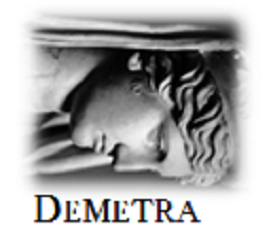 Margarita Rodríguez Ibáñez: The non-profit association DEMETRA was born to support an ambitious but noble project, seeks to emancipate civil society and boost personal thinking in the face of the media’s strength in different areas such cultural, social and the politician.
Margarita Rodríguez Ibáñez: The non-profit association DEMETRA was born to support an ambitious but noble project, seeks to emancipate civil society and boost personal thinking in the face of the media’s strength in different areas such cultural, social and the politician.
In order to face these challenges, in 2014 DEMETRA began with the creation of the digital tool VotAndo (www.Votando.es) a free app aimed to test a continuous democracy in Spain and overcome the mere circumstance of the vote that constitutes an act restricted to a specific time (every four years) and for a single political party, because sometimes does not contain all the nuances of our whole tendencies (cultural, social, economic, educational, etc.).
In 2015 the Association became a member of the International Observatory of Participatory Democracies (OIDP) and participated as a jury in 2015 and 2016 editions. Currently, from 2017 to 2020, DEMETRA is part of “Sharing Society” Research Group (leaded by Bilbao University) aimed at understanding of the impact that the new collaborative culture will bring to society.
How does this project connect to your dream for the Commons in Europe? ECA constitutes a media to collaborate in the boost for the citizen participatory process for European society, and for sure, to find new procedures together. We guess that this meeting will contribute to improve Demetra´s path and suppose a big step for European Commons for the next future. Besides, understand what will mean to the European society and, why not, for the globalized social process. For sure, we want to take an active part in it.
Commons Josaphat
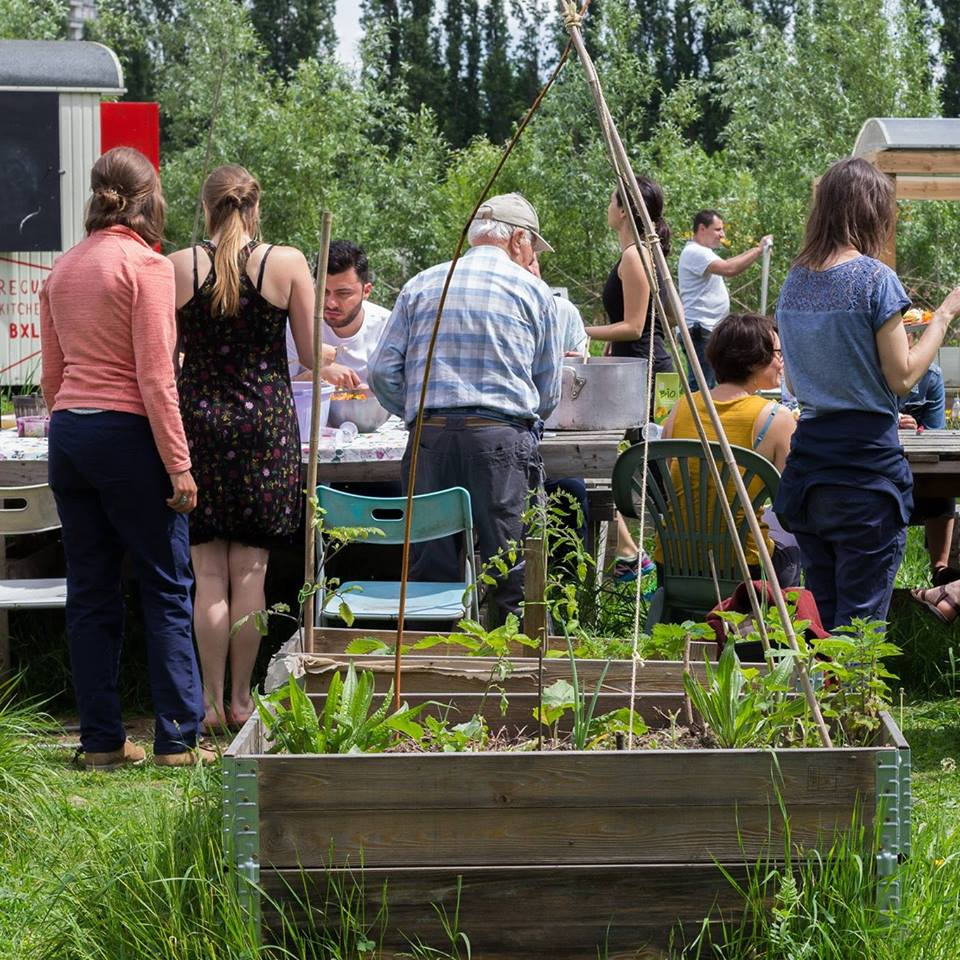 Hanne Van Reusel: I will be joining the ECA under multiple ‘casquettes’. I am a member of Josaph’Aire, an umbrella for several citizen initiatives that are active on the Josaphat site in Brussels. This area ‘of regional interest’ will be soon developed into a new neighbourhood.
Hanne Van Reusel: I will be joining the ECA under multiple ‘casquettes’. I am a member of Josaph’Aire, an umbrella for several citizen initiatives that are active on the Josaphat site in Brussels. This area ‘of regional interest’ will be soon developed into a new neighbourhood.
Today, however, the site is a civic laboratory were we act and reflect on-site on the co-creation of our city. Among the partners of Josaph’Aire there is the collective Commons Josaphat that developed a proposal for the future of Josaphat as a neighbourhood ‘en bien commun’. This civic platform is currently looking to expand its opportunities to propose urban commons in Brussels.
Personally, I am strongly engaged in both collectives, a civic and professional commitment. I work as architect-researcher at the Faculty of Architecture of the KUL in Brussels. Through action research I am exploring a feminine approach to making city.
Ministry of Space
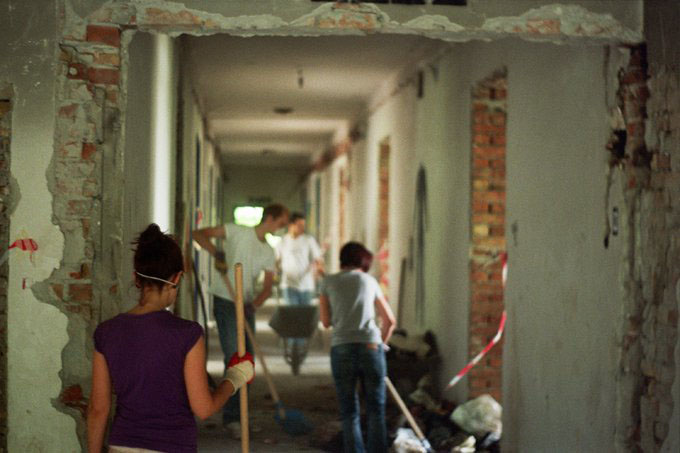 Iva Cukic: Ministry of Space (Ministarstvo prostora) is a collective from Belgrade which was founded in 2011 with the aim of reflection on the future of cities. Their joint work was initially focused on the formal creation and defense of public and common space, using the DIY philosophy. This is a further incentive to the study of different approaches to urban development, cultural practices and interventions in cities, through a series of actions, exhibitions, workshops and public discussions.
Iva Cukic: Ministry of Space (Ministarstvo prostora) is a collective from Belgrade which was founded in 2011 with the aim of reflection on the future of cities. Their joint work was initially focused on the formal creation and defense of public and common space, using the DIY philosophy. This is a further incentive to the study of different approaches to urban development, cultural practices and interventions in cities, through a series of actions, exhibitions, workshops and public discussions.
Ministry acts in the field of urban and cultural policies, sustainable city development, fair use of common resources, and the involvement of citizens in the urban development of their environment. The main focuses of their work during last years were encouraging and foster citizens’ participation in defining public interest in urban and spatial planning and urban resource management, by:
- Advocating for changing regulation on urban and spatial planning to be more transparent and participatory;
- Advocating for changing regulation on management of public property to be more transparent and consider public benefit;
- Developing and advocating for models of ensuring not-for-profit and common spaces in different cities;
- Articulating positions and campaigns tackling non transparent city development that hinders public interest.
Some of activities held are:
- Ne da(vi)mo Beograd: from the beginning of the project “Belgrade Waterfront”, we started to organize broad civic initiative consisting of 35 individuals, professionals, organizations that oppose the project for the lack of transparency, legal and procedural standards, professional principles, public interest. More on: https://nedavimobeograd.wordpress.com/ www.facebook.com/nedavimobeograd
- Citizens in City Development: The research on national and local policies, legal framework that defines the process of urban and spatial planning and experience of citizens in relation to the urban planning. issuu.com/ministarstvoprostora/docs/citizens_in_city_development_-_summ /
- Spacebook: web portal which aims to improve accessibility of information regarding abandoned and unused spaces and provide a online (and offline) space for debate among interested citizens. Web portal is currently being developed. http://spacebook.nonetech.com/
- Expedition Inex Film: do-it- yourself action of turning abandoned building in Belgrade suburb into a space for work and cultural production and presentation for numerous groups and individuals: https://www.facebook.com/InexFilm
- Cinema: “The Written Offs Return”: a campaign lasting three years with focus to turn public attention to dubious privatization of a large number of cinemas in Belgrade, which resulted in their closing. This campaign culminated in November 2014 with “liberation” of cinema “Zvezda” in center of Belgrade and making of “New cinema Zvezda”. “Liberation” of cinema Zvezda was declared as a cultural event of the year and attracted to huge media attention. www.facebook.com/novibioskopzvezda
- Street Gallery: a pioneer venture of reconstructing and reviving ruined public spaces in an open art gallery. Street Gallery for three years represents a meeting place and one of the few places where alternative cultural scene can be presented under the open sky. www.ulicnagalerija.rs www.facebook.com/UlicnaGalerija
- Studies of the Common seek to explore, apply and experiment with the concept of commons in the local/regional context, to promote and further the understanding of institutions/modes of organization that can be used in the management of resources that are or could be held or used collectively, with speacial focus on practices and approaches that can be applied in the local context.
Groupe Chronos
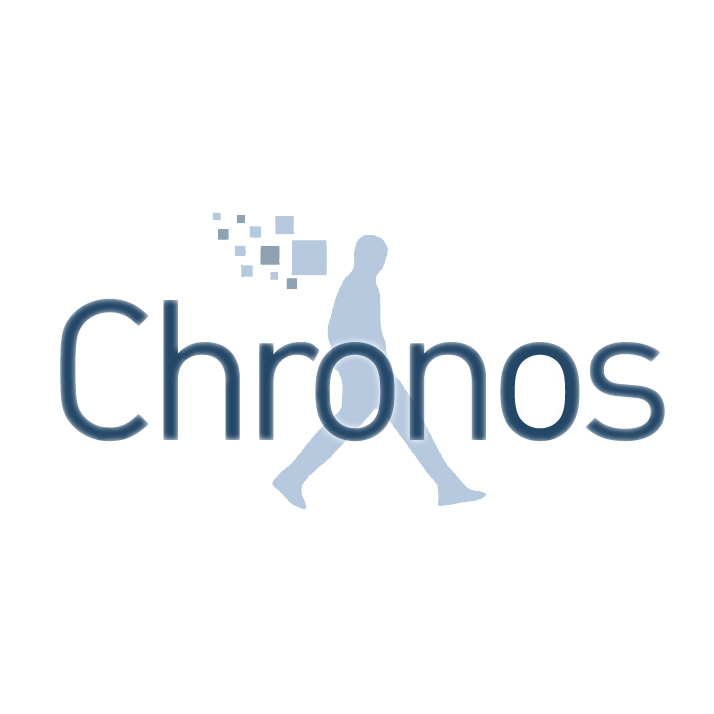 Bruno Carballa: Groupe Chronos is a social enterprise dedicated to consulting, prospective and research on four main topics: mobility, territories, digital technologies and everyday practices. In Chronos we believe the commons constitute an alternative development pattern though which territories can foster self-sufficient forms of value creation for and by their inhabitants around activities of general interest.
Bruno Carballa: Groupe Chronos is a social enterprise dedicated to consulting, prospective and research on four main topics: mobility, territories, digital technologies and everyday practices. In Chronos we believe the commons constitute an alternative development pattern though which territories can foster self-sufficient forms of value creation for and by their inhabitants around activities of general interest.
We aim at contributing to the cause of the commons by, on the one hand, producing and sharing knowledge on how to make them flourish and endure and, on the other hand, helping policy-makers to develop virtuous impact-assessment-based public-commons partnerships.
MediaLab-UGR
 MediaLab-UGR team: MediaLab-UGR acts as a meeting point for research, analysis, and the dissemination of opportunities generated by digital technologies in the areas of culture and society. MediaLab-UGR is part of the University of Granada’s Vice-Rectorate for Research and Knowledge Transfer. It strives to serve as an open laboratory for the generation of proposals at the University and in society, as a research hub, and as an experimental space for exploring creativity and new ways of generating knowledge in digital societies.
MediaLab-UGR team: MediaLab-UGR acts as a meeting point for research, analysis, and the dissemination of opportunities generated by digital technologies in the areas of culture and society. MediaLab-UGR is part of the University of Granada’s Vice-Rectorate for Research and Knowledge Transfer. It strives to serve as an open laboratory for the generation of proposals at the University and in society, as a research hub, and as an experimental space for exploring creativity and new ways of generating knowledge in digital societies.
The Lab places special emphasis on prototyping and open knowledge (a superset encompassing the concepts of open data, open content and open access). MediaLab-UGR has been developed as a cross-sectional open space by, and for, the University and society. It operates both as a physical hub and via social networks, with a view to connecting and (re)combining knowledge generated at the University and in society, particularly emphasizing the value of digital cultures in this process. An important objective of the UGR MediaLab is to incorporate technology within the frameworks of knowledge generation, social interaction, and public engagement.
MediaLab-UGR offers a specially designed working environment which fosters collaborations and knowledge exchanges, placing value on pressing societal concerns and personal pursuits. Moreover, the Lab stresses the importance of informal learning contexts and close working relationships, in line with the proposals of other laboratories such as the Prado MediaLab in Madrid. MediaLab-UGR, a key entity at the Vice-Rectorate for Research and Knowledge Transfer, is structured horizontally, thereby making the most of potential opportunities, resources and networks from diverse centres and bodies at the UGR. It also enables these different centres to forge lasting ties with each other, as well as with other academic bodies and organizations in society.
The Lab encourages proposals and provides support during open calls for applications, promoting active and broader participation in collaborative project development. In order to achieve this goal, the Lab runs a broad array of training courses, workshops, conferences, debates, group work sessions and seminars throughout the year. Moreover, the MediaLab-UGR is active both in the physical and digital spheres, employing a natural and holistic work ethic that prevents discontinuities. It goes beyond artificial distinctions between the developmental aspects that contribute to shaping the Lab’s identity and the people working in it.
As for the connection between MediaLab-UGR’s dream for the commons in Europe, we aim to work on the advantages of new digital technologies in order to enhance social participation and, thus, democracy and the strengthening of the commons: the ultimate source of communitarian knowledge from a European perspective.
Tenants Union Madrid
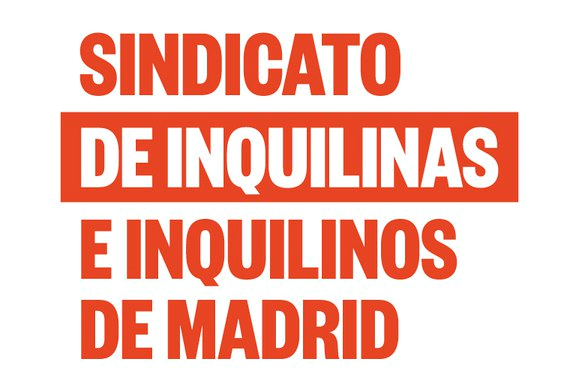 Tenants Union Madrid team: Rental prices have reached historic records in both the city of Madrid and its metropolitan area. In the last twelve months alone rental prices have gone up by 15% in the capital and by 18% in the region as a whole. This, together with the low average salaries (almost 50% of the population earns less than 1000€ per month), causes a true emergency situation for those of us who do not own a house.
Tenants Union Madrid team: Rental prices have reached historic records in both the city of Madrid and its metropolitan area. In the last twelve months alone rental prices have gone up by 15% in the capital and by 18% in the region as a whole. This, together with the low average salaries (almost 50% of the population earns less than 1000€ per month), causes a true emergency situation for those of us who do not own a house.
The strong demand, the scarce and expensive supply together with the stringent guarantees required for a contract make finding a rental apartment more difficult every day. It’s also very difficult to pay the rent every month: the prices keep going up as we spend more and more of our stagnant salaries on our flat. There are additional consequences: the expulsion of the traditional tenants to the periphery, a high number of evictions caused by unpaid rent (68% of all evictions in the past four years) and the exclusion from the rental market of the most disadvantaged, who are forced to seek informal housing.
The causes of this phenomenon are structural. The central government has deepened its commitment to liberalization in the recent changes to the law (“express eviction” in 2008, reform of the Urban Rentals Law in 2013). It has given priority to “free housing” and the sales market against rentals, ignoring the need for policies that improve the rental situation (social services, social housing).
In summary, private property and the free market prevail against the rights of tenants. On top of these structural causes, there are others, circumstantial, which have led to the creation of a second housing bubble. Given its recent profitability, the rental market has become the new bet of the wounded real estate sector. It aims to make it the new growth engine of the Spanish economy. On top of that the proliferation of tourist rentals through so-called “sharing” platforms like AirBnB implies further price hikes: the house owners prefer to rent them for shorter periods at higher prices. In this way the right to housing is subordinated to the profits of speculators and investment funds.
Faced with this situation we have said enough, and have decided to organize ourselves to give a collective answer to this problem. Heirs to the fertile tradition of tenant struggles in the early XX century and the current struggles of those affected by mortgages (PAH) and for the right to the city, we have decided to create a Tenants Union (Sindicato de Inquilinas e Inquilinos). Today, here, we begin the process of constructing a tool to fight for our rights: tenants’ rights. The past teaches us that only through struggle, organization and mutual support it is possible to revert the huge imbalance of power between tenants and owners. We are convinced that this Union is the counterweight of this imbalance.
For all this, we call and welcome everyone in Madrid to join us in this road to the creation of a Tenants Union: to be able to live in our neighborhoods with guarantees and rights, to show once again that unity makes strength.
Don’t Let Belgrade D(r)own
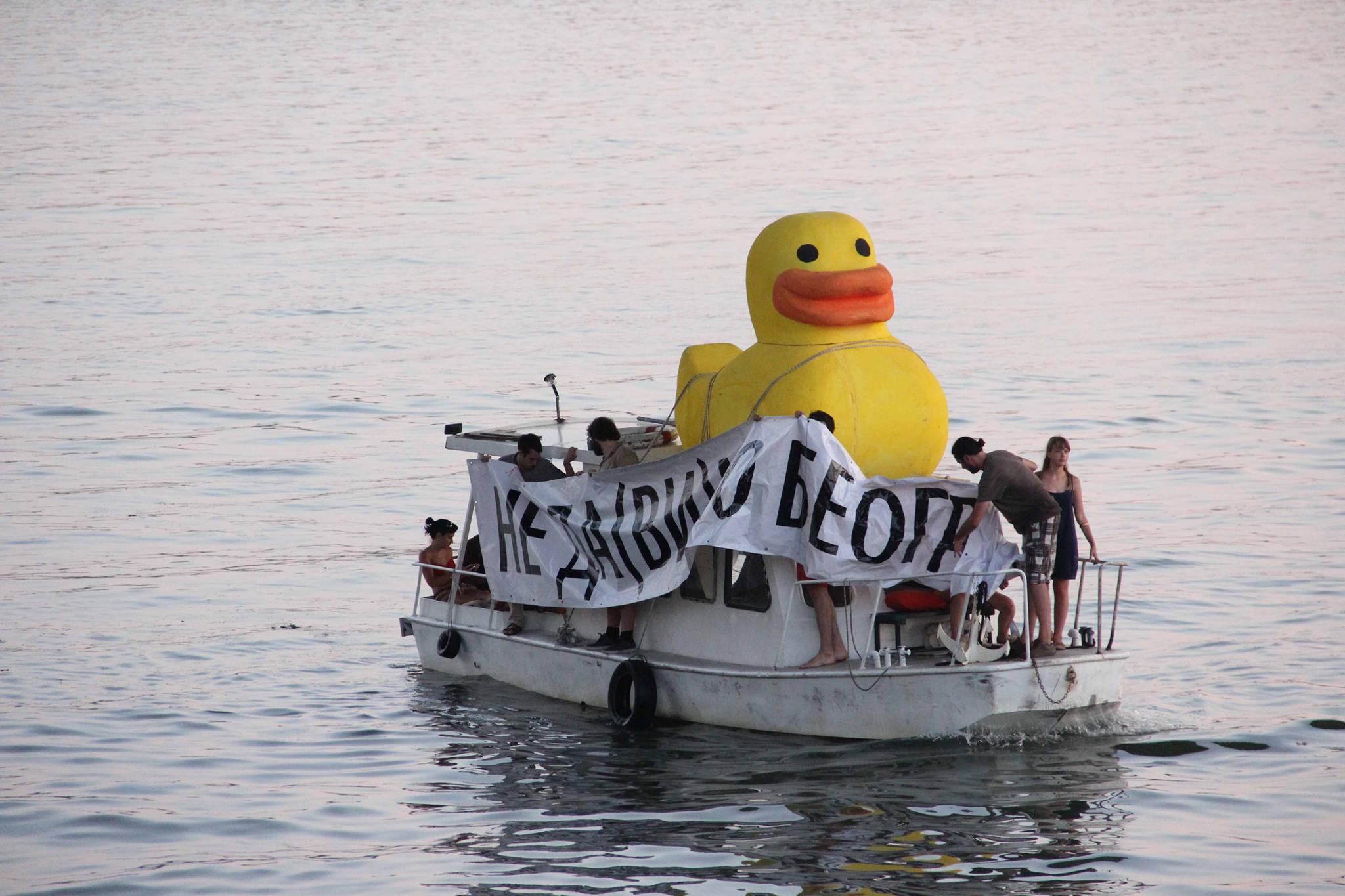 Don’t Let Belgrade D(r)own. An introduction: Initiative Ne da(vi)mo Beograd (Don’t let Belgrade d(r)own) brings together individuals and organizations interested in urban and cultural policies, sustainable city development, fair use of common resources, and the involvement of citizens in the urban development of their environment. We are a group of people of various profiles, interests and beliefs, who have gathered around a common goal: to put an end to the degradation and plunder of Belgrade on behalf of megalomaniacal urban and architectural projects, primarily the “Belgrade Waterfront” project.
Don’t Let Belgrade D(r)own. An introduction: Initiative Ne da(vi)mo Beograd (Don’t let Belgrade d(r)own) brings together individuals and organizations interested in urban and cultural policies, sustainable city development, fair use of common resources, and the involvement of citizens in the urban development of their environment. We are a group of people of various profiles, interests and beliefs, who have gathered around a common goal: to put an end to the degradation and plunder of Belgrade on behalf of megalomaniacal urban and architectural projects, primarily the “Belgrade Waterfront” project.
The Belgrade Waterfront project became a symbol of a broader fight that the Initiative has been fighting for the last three years; a fight against the corruption, the violation of human rights, and the appropriation of parts of our city for the private interests of non-transparent actors, for whose expenditures, we, the citizens of this country, have to allocate vast amounts of money. We refuse the constant disregard and contempt for citizens’ voices and opinions in the face of the private interests of individuals and shady deals between investors and politicians, in which, ultimately, the public good and public funds end up as collateral damage.
Our main message is that these are our cities, and we are responsible for each of their parts, processes, and problems, both for the present and for the future we will leave. In these three years of struggle, the Initiative have sparked the citizens awakening and worked with many local communities in raising their voices, it has gathered and published many information on various project and acts in public space and of public interest, we have organized several mass protest in which we showed that the citizens will stand in defending their commons, we have filed complaints against illegal construction and worked hard on rising the citizens participation, we have published newspapers, as we were forbidden from asking questions as journalists, and we have, and still are, demanding justice on the city’s officials in anti-constitutional deprivation of freedom of citizens and failure of the police to act upon its duties in the election night in 2016.
We have become a part of a much broader network of action rising all over Europe, realizing that we are not alone in our fight for more just society, where commons belongs to all, and not just to a small group of privileged. The initiative is funded by the voluntary contributions of the participants, as well as the individuals and organizations that support our activities, ideas and goals.
Urban Nova
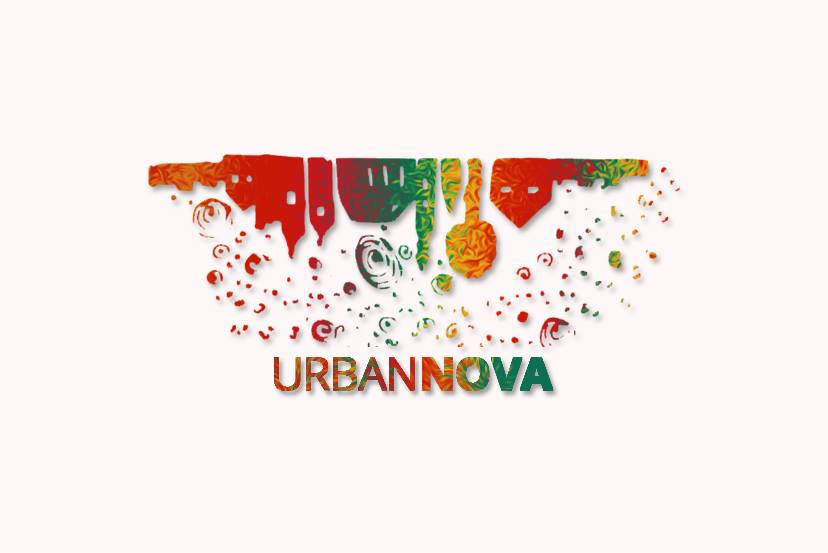 Urban Nova: Urban Nova is registered as non governmental organization in July, 2013. In Herceg Novi, Montenego We strongly believe that combination of creativity and peaceful activism is one of the most effective way to overcome the lethargy and the lack of progress in a small community. NGO Urban Nova does not act solely as a women’s group, but our values are based on the principles of feminism, especially eco – feminism. Through our experience, we concluded that in the conditions of patriarchal environment, such as in Montenegro, empowering a broader target group and developing principles of equality can have real impact.
Urban Nova: Urban Nova is registered as non governmental organization in July, 2013. In Herceg Novi, Montenego We strongly believe that combination of creativity and peaceful activism is one of the most effective way to overcome the lethargy and the lack of progress in a small community. NGO Urban Nova does not act solely as a women’s group, but our values are based on the principles of feminism, especially eco – feminism. Through our experience, we concluded that in the conditions of patriarchal environment, such as in Montenegro, empowering a broader target group and developing principles of equality can have real impact.
Through our action we want to support women, children and young people, especially young women, mothers, women- activists; to further develop their potentials. We want to create a safe environment where all of our beneficiaries can develop relations of cooperation, non-violence, sharing. Creativity and art we see not only as a framework without barriers, but also as a tool through which we can achieve our goals. Women recognize our organization as a place where they can meet and share views, initiatives, problem- solving ideas, creativity and experience.
In addition, as a local organization we are also recognized as promoters of a rational and gender and age sensible attitude towards the usage of public spaces and also as initiators of the cooperation of all stakeholders in the community to jointly organize and implement creative activities in public spaces.
Project Why Waitin’?
Waiting for Godot was written in 1949. The author/representatives were always against female actors being played it. Their objections was never explained. In 2006, Italian Theater Company successfully took them to court. It was seen as a victory for civil liberties. Aim for staging all-female piece is to raise awareness among the general public of the challenges women grapple with in a society poised uneasily between a deeply patriarchal, macho mentality and the country’s modern tendencies.
Main conviction in patriarchal societies is that a woman is incapable of being effective in politics or business; if she proves to be successful in those fields-there must be something wrong with her. On the other hand the adored figure of a Big Mother is revered mostly for her capacity to suffer quietly. We intend to produce adaptation of theater performance “Waiting of Godot” as “Why waitin’?” with all female cast and to bring it before audiences not only in Montenegro (where audience will have possibility to attend live performance), but also in region countries. Gender stereotypes were examined in the production and also on workshops’ discussion using imaginative ways to engage the audience.
The director who adapted the play is a professional (women who works in the UK and Montenegro). Women not only in the Montenegro but also in other European countries face a challenge of patriarchal society believes. It is therefore necessary to work internationally. The work on project is based on common exchange of experiences and knowledge. International cooperation is needed to answer international challenges. Leitmotif of our cooperation can be expressed through sentence: “Together we get farther.” We played “Why Waitin’?” at various alternative scenes which were located in a more or less ruined public areas in Boka Kotorska.
We have invested effort, along with other local initiatives in order to draw attention to the decision-makers that attitude towards public spaces must be more responsible, but also to encourage other actors of the independent cultural scene to use these urban resources which are, at the end, public property.
2017-10-23 11:25:06 – Commonsnetwork
 ☰
☰
